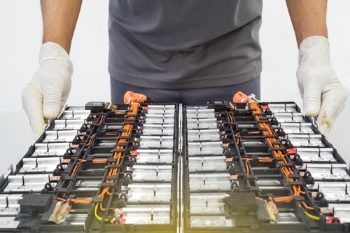

Battery health is generally at the back of every electric vehicle (EV) driver's mind. EV lithium batteries are very different to those in our everyday tech, e.g. mobile phones, but there are still some concerns about EV battery degradation which need addressing because EV batteries are consistently outlasting expectations, which is why we have not seen many being recycled yet.
The biggest misconception surrounding EVs is the lifespan of the battery, and the vehicle remarketing sector needs to reassure the public that EV batteries last.
EV batteries aren’t likely to degrade quickly at all. Take Ember buses, for example. Ember buses run from Dundee to Edinburgh on one charge. They run 24/7. They’re either on rapid charge or picking people up. Their oldest buses have driven in excess of 620,000km over three years and battery health remains in the high 80s. In other words, these vehicles still have 80-90% of their capacity when they were new. 620,000km is beyond the lifespan you would expect for a typical consumer EV, which demonstrates just how capable EV batteries are at going those distances.
By highlighting extreme scenarios, such as Ember buses, it is possible to alleviate drivers’ concerns, as they are great success stories. Numerous EVs have driven over 100,000 miles, by which time a typical petrol engine starts to develop serious issues.
It’s important to be aware that, for an EV, mileage is more than a number – it is a measure of how much useful life it has left. And typically, in a modern EV, it’s likely the battery (and the motor) will outlast the chassis.
The manufacturer’s warranty is for up to eight years or 100,000 miles, but batteries have a much longer lifespan than that. We know this as there are State of Health (SOH) diagnostic companies like Altelium that conduct their own tests on vehicles and certify the health of the battery, providing an ‘extended’ warranty. They would not confidently provide this without the knowledge of the state of health of the battery, and their diagnostic tests reveal battery health is high after eight years or 100,000 miles.
SOH diagnostic companies providing extended warranties offer peace of mind to customers and resellers alike, and is how each used vehicles’ state of health can be measured before sale.
Some of these SOH diagnostic companies are also insurance companies, so if you have a vehicle with fairly high mileage and outside the manufacturer’s warranty, some insurance companies will assess the health of the battery, and if substantial, will provide a warranty at a reasonable price.
By doing this when selling a used EV, vehicle remarketers can provide customers looking to procure a used EV, with an honest, transparent analysis of the vehicle’s battery health alongside an extended warranty. Again, it is up to the remarketer to educate the customer that although the EV has driven over 100,000 miles, batteries are robust and degradation is minimal so the vehicle is still a worthy investment.
To make monitoring and reporting battery health easier, the new Global Technical regulation being introduced mandates the ability to determine the battery’s state of health readily, within the settings of the vehicle. The regulation is also looking at mandating battery warranties – so that there must be at least 70% of battery health remaining within eight years or 100,000 miles, and interim of that, that at least 80% of battery capacity today versus new, within five years or 60,000 miles. This regulation will ensure any new entrants won’t slack on the quality of the battery or the thermal management system (to keep it at optimal temperature). This will be a vehicle designed for the longest possible life.
New or used, EVs have an SOH report within the battery management system of the vehicle. If new, it will be within the manufacturer’s warranty, and if used, specialised SOH diagnostic companies will determine the SOH, providing extended warranties. The process is getting easier the more mainstream EVs become.
And, with SOH diagnostics, resellers can be transparent with potential customers about battery health, so customers can better understand if the vehicle is suitable for their needs and approximately how much to expect to pay for a vehicle in that state.
The Vehicle Remarketing Association (The VRA) recently produced a new EV battery white paper which you can obtain by emailing info@thevra.co.uk.
Sign up here to receive our free weekly news bulletin and quarterly e-book.